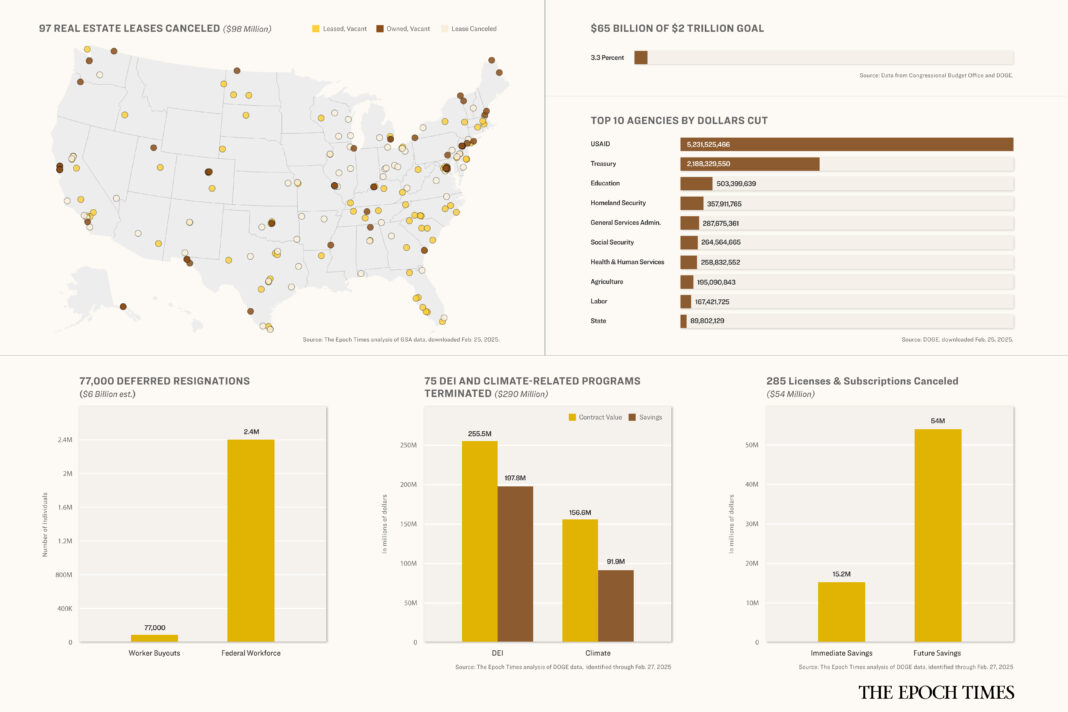President Trump is aggressively attempting to reset the current operating structure of the U.S. Constitution. He is doing so by asserting complete control over the Executive branch, the many independent agencies established by Congress, the regulatory process, the Civil Service, Civil Rights, the implementation of laws enacted by Congress, and soon, congressional spending powers as he seeks to impound appropriated monies. His argument is based on the Unitary Executive Theory, which posits that the President, as the head of the Executive branch, has complete control over it. This theory, which has its roots in the Nixon administration but gained prominence during the Reagan era, is now being pushed to its limits by Trump. He believes he is the only person who can undertake this restructuring, and to be successful, he must do it immediately before his opponents organize to defeat him.
While most of the nation agrees with the policy changes sought by the President, a successful leader must appreciate that exercising great power is a balancing act on a very thin wire. While President Trump believes he can push anyone off the wire who gets in his way, the other power centers on the wire seek to exercise their “power” as much as the President is exercising his power. These efforts were on full display with Trump’s four indictments, two attempted assassinations, and two impeachments.
These other power centers include Congress, the courts, states, Democrat elected officials and operatives, advocacy organizations, and sometimes just pissed-off people. These power centers are still in a partial state of rest but are all subject to the first law of political physics: a politician or advocacy group in rest remains at rest until a force causes it to change.
Many of us may not agree with the Progressives opposing the President’s policies, but we must recognize that they are as much a part of the Republic as we are. A successful leader will use persuasion, not insults, to bring opponents along or keep them on the sidelines until the President’s policies are implemented.
Edicts don’t sit well with Americans. President Trump does not like the mandates in the current system, but almost half the nation does not appear to want his mandates. This divide is a challenging dilemma since none of us are going anywhere, and no president will ever allow any separation from the union. So, leadership is needed, not edicts, to keep the nation together. This leadership must involve collaboration with Congress, as the situation’s urgency demands.
In the United States, the President is elected to manage the federal government along with Congress, the courts, and the states, and at regular intervals, the people have a say with their votes. Presidents do not have dictatorial powers, notwithstanding the fact that Congress delegated many such powers to presidents by enacting 140 emergency laws that purportedly give presidents the power to be dictators at the time of their choosing.
Presidents may argue they control every person and decision in the Executive branch, no matter what laws Congress enacts, but no matter what a president claims to control, Congress will always control the purse and the Impeachment process. No presidential power can modify those powers of Congress short of a revolution, coup d’état, or military takeover.
The courts, particularly the Supreme Court, play a crucial role in maintaining the balance of power. While the courts may try to satisfy the President on certain claims to power, such as controlling Independent Agencies and firing government employees, their support has limits. The Supreme Court, if it remains loyal to the Constitution, will never remove the exclusive power of Congress to raise and spend money. This means Congress can and will prohibit the President from impounding any monies it appropriates. Conversely, Congress can deny a president the funds sought to support his programs. If the President wants appropriations rescinded, he must go through the rescission process set out in the Impoundment Control Act of 1974. If a president wants money from Congress, he must make a persuasive argument for the money. If a president wants to reorganize the Executive branch, at some point, he will need Congress to authorize Executive reorganization authority.
As recently as 2017, the Heritage Foundation, the author of Project 2025, which is the Trump playbook, analyzed the authority of any president to reorganize the federal government. Its key findings:
The President has no statutory authority to reorganize the executive branch, except where acts of Congress delegate authority to make particular changes.
Even without statutory authority, the President may convene a task force or commission to study executive branch concerns and recommend changes to Congress.
The President may create, reorganize, or abolish an office he established but cannot reorganize the executive branch in violation of an act of Congress.
In a nation where the rule of law is enshrined, a President seeking to implement his policy rather than satisfy his ego by embarrassing Congress would work with Congress to help it fulfill its legislative role rather than humiliating it into being a rubber stamp for his wishes. The President may not get everything he wants, but he will get most of it. And what he gets will be enshrined into law, not a temporary Executive Order. This adherence to the rule of law is crucial for maintaining order and structure in our nation.
The nation needs many of President Trump’s proposed policies enacted into law. Whether those policies are passed into law depends on how the President treats Congress and whether the courts view the President’s actions as reasonable and within the Constitution or laws enacted by Congress. Although a gratuitous comment, the Supreme Court granted President Trump immunity from prosecution because the actions of his opponents ranged between unreasonable and insane. The President does not want the court to view him as a threat to Democracy.
Currently, Congress and Trump’s political opponents are in a state of ‘future shock,’ a state of distress or disorientation due to the President’s rapid forcing of political change. If President Trump accumulates as much power as he seeks while treating the Democrats as the enemies of the nation and the Republicans as his valets, there are two likely outcomes. Either Congress fades into irrelevancy, and the nation erodes the rule of law, or the institution of Congress (Democrats and Republicans) becomes an equal and offsetting power that is as aggressive as the President in exercising power. This latter option would be the iron will of the President vs the spending power of Congress. A standoff is not in the best interest of the nation. It is crucial to understand these potential outcomes to grasp the gravity of the current power struggle.
Finally, President Trump, Congress, and the courts should constantly remember that whatever aggressive actions are implemented and approved by the courts will be adopted by the next Democrat administration. The nation will bounce from one chaotic administration to another every time there is a change of administration. President Trump’s goal should be a legacy of laws that enshrine his policies and stabilize the United States rather than a set of actions that ensure future chaos.








